
New findings reveal the feasibility of self-administering remternetug, a monoclonal antibody for Alzheimer, enhancing treatment options for early-stage patients.

New findings reveal the feasibility of self-administering remternetug, a monoclonal antibody for Alzheimer, enhancing treatment options for early-stage patients.
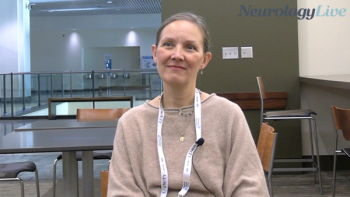
At NSGC 2025, the research director at the Clinic for Special Children discussed the clinic’s approach to accelerating the diagnosis and treatment of spinal muscular atrophy. [WATCH TIME: 5 minutes]

The medical director of the stroke recovery program at JFK Johnson Rehabilitation Institute at Hackensack Meridian Health discussed the role health insurance plays in stroke survivors receiving rehabilitation care. [WATCH TIME: 4 minutes]
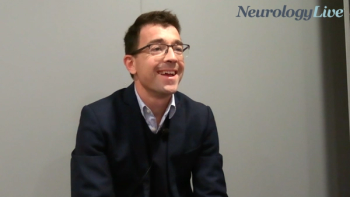
The neurologist at the Multiple Sclerosis Center of Catalonia talked about the challenges of defining seronegative in new diagnostic criteria for neuromyelitis optica spectrum disorder [WATCH TIME: 5 minutes]
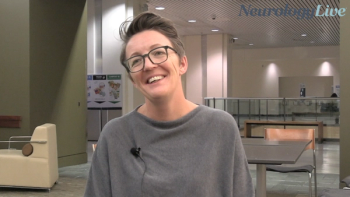
The senior director of research and real world data at Genome Medical talked about the benefits and challenges of genetic counselors adopting artificial intelligence tools. [WATCH TIME: 5 minutes]

The chief medical officer at Ventyx Biosciences provided commentary on early clinical findings supporting NLRP3 inhibition with VTX3232 as a potential disease-modifying approach for Parkinson disease. [WATCH TIME: 4 minutes]
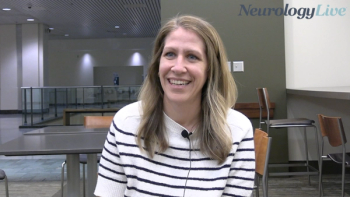
The genetic counselor in the Department of Ophthalmology at the University of Pittsburgh Medical Center talked about the evolving role of genetic counselors in guiding patients through gene therapy. [WATCH TIME: 4 minutes]

KYV-101 shows promising efficacy in treating generalized myasthenia gravis, offering hope for durable remission through innovative CAR T-cell therapy.

The medical director of the stroke recovery program at Hackensack Meridian Health JFK Johnson Rehabilitation Institute provided clinical insights into her presentation focused on expanding rehab care for stroke survivors across settings. [WATCH TIME: 5 minutes]

At ECTRIMS 2025, the associate professor at Pontifical Catholic University of Chile discussed global challenges in diagnosing multiple sclerosis early. [WATCH TIME: 5 minutes]

At MDS 2025, the professor of neurology at Northwestern University Feinberg School of Medicine discussed the evolving landscape of disease-modifying clinical trials in Parkinson disease.

Carrie Haverty, MS, CGC, NSGC president-elect, discusses the evolving role of genetic counselors, emphasizing personalized care, gene therapy advancements, and the need for multidisciplinary integration in health care.

At MDS 2025, the lead specialist for patient insights at Lundbeck spoke about the importance of considering patient and caregiver voices when designing clinical trials. [WATCH TIME: 3 minutes]

Naji Gehchan, MD, MSc, chief medical and development officer Kyverna, discussed how KYV-101 may redefine generalized myasthenia gravis care through deep B-cell depletion and durable, drug-free remission.
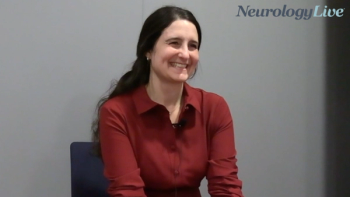
At ECTRIMS 2025, the staff neurologist at Cleveland Clinic’s Mellen Center for MS discussed developing a machine-learning tool to predict individualized risk of recurrent disease activity in multiple sclerosis. [WATCH TIME: 6 minutes]
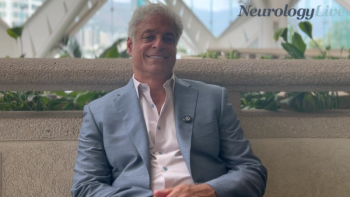
At MDS 2025, the chairman and CEO at ABLi Therapeutics discussed phase 2 results of risvodetinib, a highly selective c-Abl inhibitor, in patients with Parkinson disease. [WATCH TIME: 5 minutes]

Mind Moments®, a podcast from NeurologyLive®, brings you an exclusive interview with James Berry, MD, MPH; and Jinsy Andrews, MD, MSc. [LISTEN TIME: 28 minutes]

Beatrice Yang, MSc, lead specialist for patient insights at Lundbeck, discussed how incorporating patient and caregiver feedback helped shape the design of a phase 3 multiple system atrophy trial to make participation more practical and patient-centered.
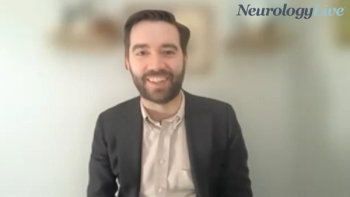
The executive vice president of public policy and advocacy at the Muscular Dystrophy Association discussed how collaboration can improve policy, funding, and care for patients with neuromuscular diseases. [WATCH TIME: 7 minutes]

Liche Zhou, MD, of the department of neurology at Jiang University School of Medicine, provided commentary on new phase 1 data on an iPSC-targeted cell therapy presented at the 2025 MDS Congress.
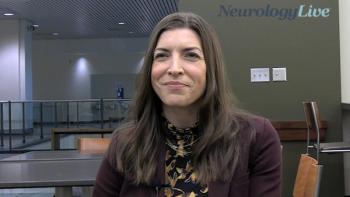
The president of the National Society of Genetic Counselors discussed the 2025 NSGC conference, highlighting AI and gene therapies as key topics, while noting the importance of genetic counselors in clinical care. [WATCH TIME: 4 minutes]
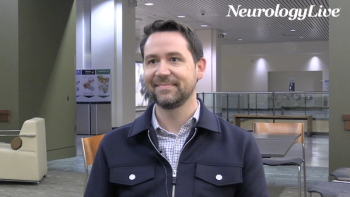
The vice president of Rare Disease Strategy at Worldwide Clinical Trials discussed how genetic counselors are becoming integral to the design, execution, and interpretation of clinical research. [WATCH TIME: 3 minutes]

A genetic counselor-only clinic enhances access to genetic testing in pediatric neurology, proving efficient and effective for timely precision diagnostics.

Caregivers share insights on discussing social determinants of health in pediatric clinics, revealing preferences for surveys over in-person conversations.

A study reveals the intricate decision-making process caregivers face when considering gene therapy for Duchenne muscular dystrophy, emphasizing shared input and personal experiences.

Although their knowledge, experience, and access to genetic counselors varied, most licensed OB/GYNs across Ohio reported routinely offering carrier screening for spinal muscular atrophy.

A study reveals that genetic counseling significantly empowers individuals at risk for frontotemporal dementia, highlighting the need for best practice guidelines.

A new study presented at the National Society of Genetic Counselors Annual Conference highlights strong interest among individuals at risk for Huntington disease in undergoing modifier gene testing, underscoring the growing role of genetic insights in personal and clinical decision-making.

A new study presented at NSGC 2025 showed that patients living with amyotrophic lateral sclerosis considering medical aid in dying often experienced emotional and logistical challenges with the process.

A recent study highlights the link between genetic neurodevelopmental disorders and increased gastrointestinal issues in pediatric patients, emphasizing the need for targeted care.